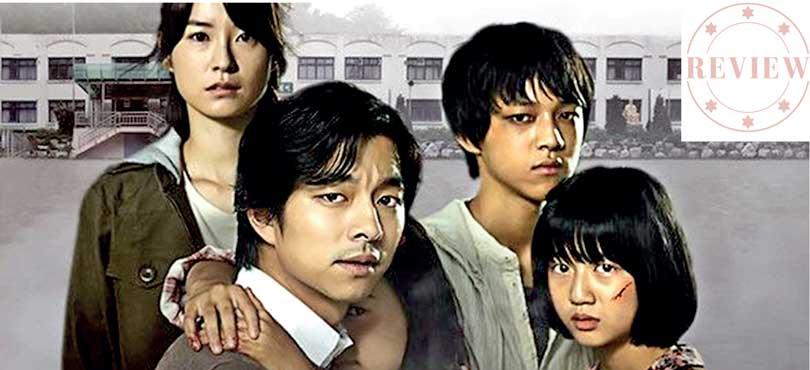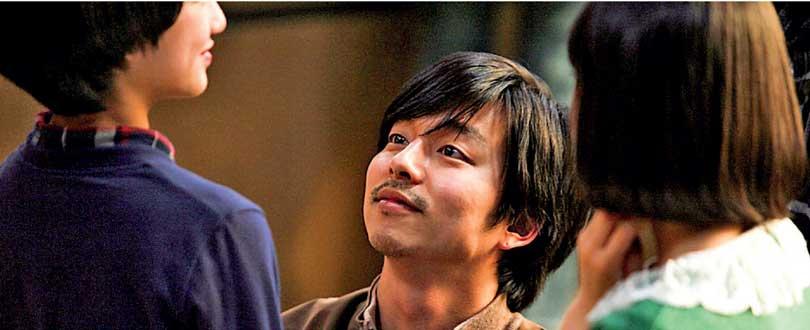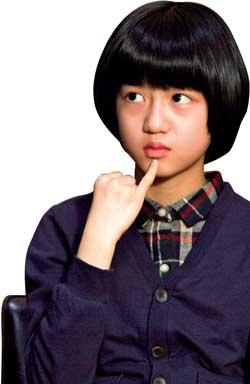26 Oct 2020 - {{hitsCtrl.values.hits}}
‘The reason why we are fighting so hard is not to change the world, But to not let it change us.’

Thanks to the intermittent Corona-sponsored holidays, a term coined by a dear friend, I have had the good fortune of indulging in the East Asian Cinema. East Asia is one of the five regions of the Asian Continent and the countries belonging to this section of the world are China, Mongolia, North and South Korea, Japan, Hong Kong, Taiwan, and Macau. Over the recent years, we’ve witnessed a surge in the East Asian film industry and in the span of a year, I have become quite the admirer of its marvelous productions. The title of this article is credited to a quote taken from the movie Silenced, directed by Hwang Dong-hyuk and starring Gong Ji-cheol, better known as Gong Yoo, in the lead. Fans of Gong Yoo, this one is for you.
The movie is a retelling of the heinous incidents that transpired at Gwangju Inhwa School in South Korea, a phrontistery for the deaf and the mute. It is an adaptation from bestselling novelist Gong Ji-young’s book The Crucible, based on the actual accounts of mass sexual abuse that took place at the school between the years 2000 and 2003. The title is borrowed from American playwright and essayist, Arthur Miller’s play of the same name.
The story takes place in the fictional town of Mujin, a place that gives life to the phrase ‘a world of its own’, with its languorous atmosphere mirroring the despondent state of the students of Ja-ae Academy, where our protagonist Kang In-ho (Gong Yoo), a newly appointed art teacher for the local school for the hearing-impaired, is navigating a bleak and fog-ridden hilly terrain. Concurrently, we witness a young boy wandering in a daze-like state into a Stygian tunnel. With a battered face and a somber expression, the child stands steadfast in the path of an oncoming locomotive before being swept off the tracks. Meanwhile, Kang In-ho’s automobile collides with a rabbit on the side of the icy road. The simultaneity of the young boy being hit by the moving train and In-ho’s vehicle clashing with the rabbit symbolizes the demise of justice for the innocent.

Upon arriving at Ja-ae Academy, In-ho meets two young students on the stairwell, Yoo-ri (Jung In-seo) quietly munching on a snack while Yeon-doo (Kim Hyun-soo) is tying up the former’s shoelaces. Seeing him, the latter quickly grabs her friend’s hand and leads her away. Dismissing the girls’ reaction as shy behavior, In-ho proceeds to the principal’s office where he is introduced to Chief Lee (Jang Gwang), the principal’s twin brother and administrator who lacks the cheerful disposition of his counterpart. Once he’s shown to his quarters, In-ho is informed of a mandatory school development fund by Chief Lee and is soon left to his own devices.
The next day, an older boy, Min-su (Baek Seung-hwan) walks into In-ho’s class late and with heavy bruises marring his face. One of the teachers explains the reason for his sullen behavior as the recent loss of his younger brother who was hit by a train.
The movie is a retelling of the heinous incidents that transpired at Gwangju Inhwa School in South Korea, a phrontistery for the deaf and the mute
Shortly after, strange incidents start to occur. One night whilst heading out the school, In-ho hears an unearthly cry echo within the quiet hallways. He proceeds to investigate and tracks the sound of the screams to the girls’ bathroom. He is barred from further probing into the matter by the night guard who explains that the cries are ‘strange noises’ the kids make for fun. In-ho later witnesses one of his colleagues brutally beat Min-su in the teacher’s lounge. Soon, In-ho too becomes the victim of the children’s weary stares.
In actual events, 2005 saw a newly appointed teacher alert Gwangju Authorities of the evident sexual and physical abuse inflicted upon the students by their teachers. Months go by where the case is tossed back and forth between the city government and the school board before a group of former students speak to the national TV station. After the abuse scandal goes public, the following incidents were set in motion:
The teacher was subsequently dispensed from his post, a formal investigation was finally carried out and six perpetrators were apprehended. Sadly, two of the perpetrators saw immediate release due to the statute of limitations for their crimes having been expired.
 Court proceedings are later botched by corruption, bribery, and Jeon-gwan ye-u. Known as ‘privileges of former post’ this refers to an informal understanding in the South Korean legal system which grants indefinite advantage to retired and public prosecutors who go on to become lawyers in the private practice where they receive special treatment from their incumbent former colleagues.
Court proceedings are later botched by corruption, bribery, and Jeon-gwan ye-u. Known as ‘privileges of former post’ this refers to an informal understanding in the South Korean legal system which grants indefinite advantage to retired and public prosecutors who go on to become lawyers in the private practice where they receive special treatment from their incumbent former colleagues.
The unjust ruling concerning this matter inspired author Gong Ji-young to write her book in 2009. The movie adaption of the book in 2011 rekindled the anger of the nation and with the citizens breathing down the politicians’ necks, the South Korean parliament unanimously passed the Dogani Bill in October 2011. The bill abolished the statute of limitations for sex offences against children under the age of 13 and disabled women. It further maximized the penalty to life in prison. Amidst public outrage, the school was closed down in November 2011.
The movie features a stellar cast and I salute the younger actors who outshone their senior co-stars in their heart-wrenching delivery of justice to their roles. I also commend Jang Gwang for his portrayal of pure vileness throughout the movie. Following the movie’s success, it received the Audience Award at the 2012 Udine Far East Film Festival in Italy and author Gong Ji-young’s book conquered national bestseller lists for the first time in two years.
Reviewed by: Stephanie Peries
24 Nov 2024 6 hours ago
24 Nov 2024 8 hours ago
24 Nov 2024 9 hours ago
24 Nov 2024 9 hours ago